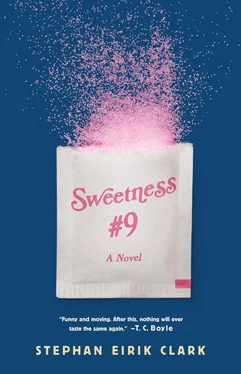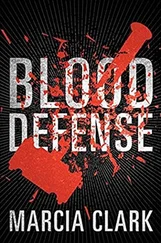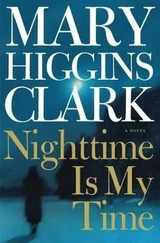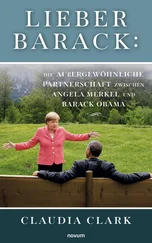“Right behind you,” I said.
As I stepped out of my office, the last of the kids were pushing in through the front door, their voices going in every direction as they sniffed at the air. “Bubble gum!” more than one said.
Eliza, a woman of fifty-some years who was fallen in every way, stood from behind the front desk and came over to Ernst to tighten his tie. “I told you the yellow one,” she whispered, “or the green vest.”
“I thought you said green tie.”
“Green vest,” she said, as Ernst, irritated, stepped away from her, clapping his hands together to gather the children’s attention. “Welcome to FlavAmerica!” he said. “I can tell there are more than a few good noses here this morning.” He moved through the crowd with all the confidence of a miracle maker in a Bible story. “We use hundreds of different chemical compounds to make our flavorings, but at the end of every day, no matter which ones we use, do you know what the office smells like? Yes, you do: bubble gum.”
He extended his hand to the elder chaperon. “Ernst Eberhardt. A pleasure to have you with us.”
He had been doing this for years. Believing field trips good for company morale, Ernst had made it a standing policy to open the doors of our labs and test kitchens to schools, youth groups, and science camps like the one visiting us today. His script never changed. He started by asking if anyone had heard of Brillat-Savarin, even though, at least for as long as I had been cast in the rôle of his sidekick, no student ever had.
“A shame!” he said this morning. “Such a brilliant fellow. Brillat-Savarin,” he said, in that soft, hissing accent of his, “considered food a theological issue. God, he said, requires that we eat to live, so he invites us to the table with appetite, sustains us”—but here his face went blank and he paused with his finger in the air.
“With the pleasure of flavor,” I said.
The circle of children swung their heads in unison toward me.
“Yes.” Ernst nodded. “Sustains us with the pleasure of flavor and rewards us with the energy in our food.” He bent over, shaking his head as he placed his hands on his thighs and looked into the face of a young boy. “You’ll have to forgive me. I’ve grown older than my memories. Did you know you could grow that old? You can.”
He stood and returned to his script. “But what of flavor chemists? Or flavorists, as we like to call ourselves. What do we do?” He turned toward the hallway, asking that we follow him into the test kitchen, “where we’ll pass around the meatless sausage links we’ve been developing and see how Jews can enjoy the savory pleasures of pork”—his finger shot up over his shoulder—“without breaking kosher.”
As the children followed him in through the door to the flavor application studio, I broke away from the group and hurried down to the break room, knowing I’d likely find our junior flavorist in there — Frederick Archibald Beekley — and hoping I could convince him to take my place. A three- to four-week delay on the Albanian report might have been to my liking, but I knew my daughter would soon grow suspicious, so I thought I should run to the post office and drop a money order in the mail. At least that way I could tell her I’d done everything I’d said I would.
“Ah, there he is! Just the man I wanted to see.”
Beekley was lying on the sofa, with little more than his feet and his hair visible. I would have needed nothing more to identify him in a crowded room. His shoes, propped up on one arm of the sofa, were unlaced high-tops (“Air Jordans,” he liked to remind me, whenever I spoke of the need to update the company dress code, “first-generation Air Jordans”), while his dense thicket of copper-red hair was styled in the likeness of a young Frederick Douglass or an old Albert Einstein. Take me seriously, his hair said. I dare you.
“Ernst asked for you,” I said.
Beekley sat up, lowering a copy of Food Product Design.
“Didn’t the school kids just get here?”
“Science campers, that’s right. He thought you might like to help out.”
He tossed his magazine onto the coffee table, giving me an incredulous look.
“You’re serious?”
I held a smile, as if I could wait him out.
“He knows how I feel about kids,” he said. “And to put it very bluntly, after what I was forced to endure last summer—”
“It was a cap gun, Beekley! Nothing more!” A boy had pulled it on him the one time he’d joined us on a tour of the premises. “If anyone could enjoy a prank, I thought it’d be you.”
“The fear was real, David. That’s what’s important.”
“And what if I’m scared? What if I need a moment alone?”
He reached for his magazine. “Fear’s your natural habitat. Besides, The Kraut loves you. You two are like Sonny and Cher. You know, before the one became a Republican droog and the other a transvestite. I couldn’t possibly replace you.”
“And if we were to replace you? Hmm? Have you thought about that?”
He looked at me, eyes unblinking.
“That’s right, Beekley.” He had one of those names you wanted to repeat. I had to stop myself sometimes. “You think you could catch on somewhere else if we threw you out a couple of months before the end of your apprenticeship? Seven years gone just like that?”
“I don’t work well when threatened.”
“Sometimes I wonder if you work at all.”
He lay back on the sofa, kicking his feet up onto the far armrest. “I’m like a writer. You should know that by now. Just because I’m lying on the sofa with one hand stuck in my pants doesn’t mean I’m not working.” He tapped the side of his head, his index finger disappearing into the jungle of his hair. “I’m very close to figuring out that cappuccino flavoring I’ve been having trouble with. I just have to distract myself long enough to allow it to appear.”
While once I had gone through life with an affable half smile, now my most natural expression moved between the poles of disbelief and disdain. I didn’t look at Beekley as if I’d accidentally swallowed a hard-boiled egg; that was a face I reserved for the most significant geopolitical events (the collapse of Communism) or the most unexpected and distressing news (the death of Princess Di). He did, however, inspire the same expression I adopted whenever I noticed someone leaving the men’s room without first washing his hands. At least once a day I’d look at him like this, wishing I could fire him for a simple dress code violation or act of insubordination, even if I knew that doing so would bring no less harm on the company than it would him. Though technically still supervised by one other senior flavorist and myself, Beekley was already without question our best man, capable of dreaming up great fugues of flavor where others could imagine only a dour toot of the horn. When it came time for him to take his final test and be reviewed by the membership committee of the Society of Flavor Chemists later this year, there was no question he would pass. The only question was whether he would still be with us two years later, when his contract would allow him to field offers from other flavor houses.
“By the way”—he tossed his chin out toward a thirty-five-gallon garbage can to the side of the soda machine—“I hope you don’t mind.” A handwritten sign taped to it read Y2K: ARE YOU READY? “It’s for cans and dry foods. An emergency pantry of sorts. I thought maybe you could mention it in one of those company memos you’re always writing.”
“Isn’t this a little premature?”
“Premature? You do understand the magnitude of Y2K, don’t you?”
He told me how the first generation of computer programmers had been like a young married couple in their first cramped apartment, looking to save space in every possible way. Computers had taken up entire basements, and a kilobyte of memory had cost as much as a Cadillac. So when they entered dates into any program, they used two digits instead of four, never once stopping to think of the confusion this would cause when we rolled into a new millennium and would need to tell the difference between the end of one century and the start of the next.
Читать дальше












